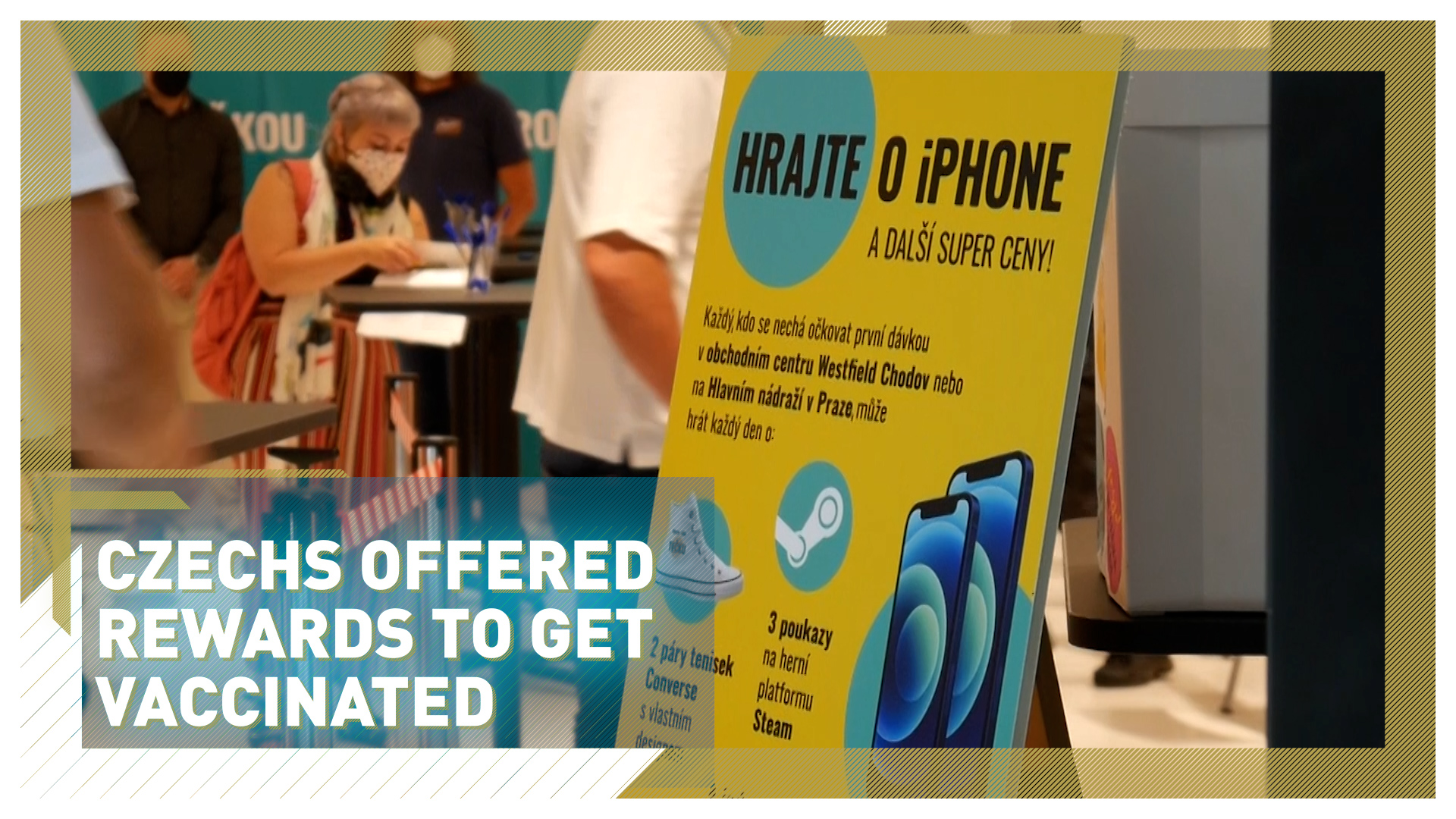02:32

As the fight against the Delta variant picks up steam, countries are looking at different ways to convince people to get vaccinated. In Czechia, for example, vaccinations are being presented as a way to make travel and trips to the pub easier.
The country is even offering financial incentives through a prize raffle. But, most recently, the government also announced financial pressure on those who refuse to get vaccinated: From September 1, all non-vaccinated citizens who want to go to a restaurant or gym will have to regularly pay to be tested.
Up to 800 people a day come to the walk-in vaccination station in Prague's Westfield Chodov shopping mall. Yet the recently opened vaccination center was only intended for around 200 inoculations. The result is a two-hour wait.
It is questionable whether the run is due to the unbureaucratic system of immunization without prior registration, or whether the Czech COVID-19 prize raffle is responsible.
"I think the lottery is stupid," said 16-year-old student Sofia Christianova, who was waiting in line with her mother. "I'm not interested in winning anything but I think that it will maybe draw more people to get vaccinated."
Israel Zuniga, 47, was also eagerly waiting at the mall for his first jab.
"Personally, I didn't know. I came here for the vaccine. But I think that it's a good idea, I support this idea definitely."
Those who have just been vaccinated can win mobile phones, sneakers or gaming vouchers.
"The goal of the lottery is to motivate people to get vaccinated," sayid Petr Raska from IKEM hospital. He is responsible for on-site IT and logistics. "You get a lottery ticket, you put it in a box and the agency that is running the lottery chooses new winners every day."
According to the government, the lottery is aimed primarily at young people, many of whom are not yet vaccinated and account for the largest share of recent new infections.
However, the crowds at the increasing number of walk-in stations are not currently reflected in the national trend.
In the past two weeks, the Czech vaccination program has stalled. The number of jabs administered each week has been cut in half, due to a sharp drop in the number of people coming forward. But despite the low turnout, the government is making sure it's stocked up, borrowing hundreds of thousands more doses from Hungary and other EU member states.
Now the challenge is getting people to take them. Although infections are slightly on the rise again, especially in Czechia's capital, the number of hospitalizations remains low for the time being.
Like many other EU countries, Czechia has been insisting on compulsory testing or vaccination before going to restaurants or bars. Until now, the state offered COVID-19 tests free of charge in many places. This is going to change starting September 1.
Time will tell how the non-vaccinated citizens react to having to pay for COVID-19 testing before going to restaurants.

